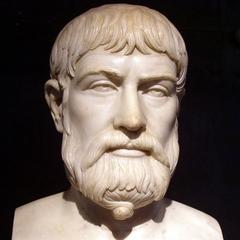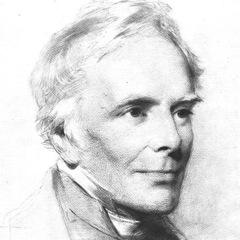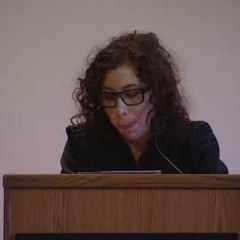Geoffrey Chaucer Quotes - Page 5

Geoffrey Chaucer (1879). “The Poetical Works of Geoffrey Chaucer: To which are Appended Poems Attributed to Chaucer”
Geoffrey Chaucer (1874). “The Prioresses Tale: Sire Thopas, the Monkes Tale, the Clerkes Tale, the Squieres Tale, from the Canterbury Tales”, p.90
"Court of Love". Book by Geoffrey Chaucer, line 1,372,
'The Canterbury Tales' 'The Knight's Tale' l. 1761
Geoffrey Chaucer (1867). “The Canterbury Tales: From the Text and with the Notes and Glossary of Thomas Tyrwhitt : Condensed and Arranged Under the Text”, p.68
For I have seyn of a ful misty morwe Folowen ful ofte a myrie someris day.
'Troilus and Criseyde' bk. 3, l. 1060
Geoffrey Chaucer, Charles Cowden Clarke (1835). “The Riches of Chaucer: In which His Impurities Have Been Expunged, His Spelling Modernised, His Rhythm Accentuated and His Obsolete Terms Explained; Also Have Been Added a Few Explanatory Notes and a New Memoir of the Poet”, p.103
'The Canterbury Tales' 'The Reeve's Tale' l. 4054
Geoffrey Chaucer (1855). “Poetical Works of Geoffrey Chaucer”, p.84
'The Canterbury Tales' 'The Franklin's Tale' l. 1016
'Troilus and Criseyde' bk. 3, l. 1625.
Geoffrey Chaucer, Thomas Tyrwhitt (1861). “The Canterbury Tales of Chaucer: To which are Added an Essay on His Language and Versification, and an Introductory Discourse, Togeher with Notes and a Glossary”, p.253
Geoffrey Chaucer (1933). “Chaucer”
And when a beest is deed, he hath no peyne; But man after his deeth moot wepe and pleyne.
'The Canterbury Tales' 'The Knight's Tale' l. 1319
"The Canterbury Tales (Persones Tale)". Book by Geoffrey Chaucer, 1387.
Geoffrey Chaucer (1851). “The Poetical Works of Geoffrey Chaucer”, p.308
Geoffrey Chaucer (1900). “The Complete Works of Geoffrey Chaucer: The Canterbury tales (Text)”
Nowhere so busy a man as he there was And yet he seemed busier than he was.
"The Canterbury Tales".
Geoffrey Chaucer, Sir Nicholas Harris Nicolas (1866). “The Poetical Works of Geoffrey Chaucer”, p.172
Geoffrey Chaucer, Sir Nicholas Harris Nicolas, Thomas Tyrwhitt (1852). “The Poetical Works of Geoffrey Chaucer: The Canterbury tales”, p.91






